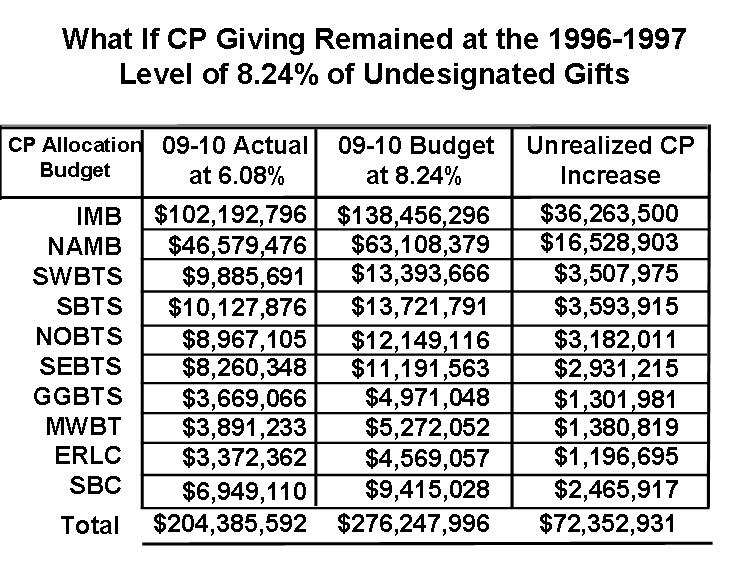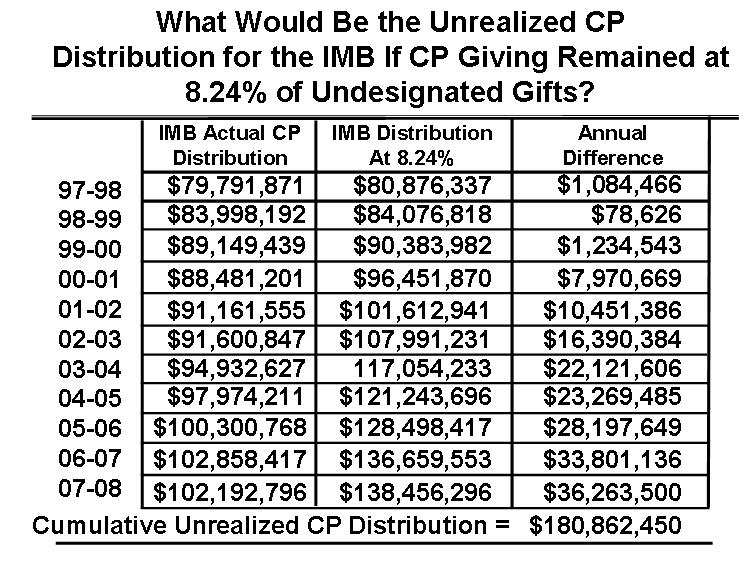 [1]
[1]EDITOR’S NOTE: In recognition of the SBC’s October emphasis on the Cooperative Program, Baptist Press will provide readers with extra news and information detailing the scope and depth of the Cooperative Program and its impact for the Kingdom. Using vignettes and profiles of churches and individuals, as well as historical and ongoing accounts, our intent is to explain the Cooperative Program not just as a funding channel but as one of the critical ties that bind Southern Baptists in voluntary fellowship for cooperative ministries and missions.
NASHVILLE, Tenn. (BP)–Some scientists and aeronautical engineers tell us that a bee should not be able to fly. The bee’s body isn’t aerodynamic, it weighs too much, its wings are too short and can’t beat fast enough to keep the bee airborne and maintain airspeed.
In some ways, the Cooperative Program (CP) is much like the bee. It ought not to work. Many other major denominations have unsuccessfully tried a variation of CP. Some leaders of the Southern Baptist Convention tell us that CP is dead or is no longer effective or efficient, or needs to be redefined. Simply stated, these leaders tell us that CP doesn’t work; it’s a relic of the past; it’s the old way; it’s a program, and programs are an anathema; and that CP is all about old denominational loyalty.
The most significant reason that CP ought not to work is that it relies on one of the most fickle characteristics of humans — an enduring willingness to freely and willfully cooperate. We all know that this rarely happens. Oh sure, there are some limited examples, but that kind of cooperation seldom happens in a church, let alone across 44,000 of them, or so they tell us.
Someone once said that bees can fly because they don’t know about the theory of aerodynamics. A similar statement can be made about CP. CP works because it has been immune to the perturbations of humans. If CP did not exist, Southern Baptists would invent CP all over again because there isn’t a better strategic solution for the SBC to reach a lost world for Christ than by giving through CP.
Initiatives like Christmas in August are well-meaning but are simply a Band-Aid that treats the symptom but not the disease. The solution isn’t a special offering to make up a shortfall in Lottie Moon giving. The solution is to challenge our churches to give more through CP. Over time, there is greater leverage in giving through CP than any other funding approach.
For example:
In the budget year 1996-1997, the churches in the SBC on average gave 8.24 percent of their undesignated offerings through CP. In 2008, churches on average gave 6.08 percent through CP. The following two charts illustrate the “what if” impact if our churches had sustained the 8.24 percent over the past decade.
The chart below illustrates the increase in CP distributions that each entity would have received over and above the approved 2009-2010 CP Allocation Budget, had our churches sustained CP giving at the 1996-1997 level of 8.24 percent.

What is most interesting about the chart below is that the International Mission Board would have received a total of $180,862,450 additional CP dollars over the last decade. That is enough money to field every missionary needed to reach all of the unreached people groups as defined by IMB. The strategic objective of IMB would have been accomplished had CP been sustained at the level of just a decade ago.

Last year (2008) was arguably the worst economic year for the U.S. since the Great Depression. And yet during this major economic downturn, SBC churches gave a record amount through the Cooperative Program: $541,883,118. This amount was more than $8 million above what SBC churches gave the previous year. Why? Because of denominational loyalty? No. That statement is an insult to the intelligence of SBC churches. Denominational loyalty isn’t enduring enough to sustain CP, particularly during significant economic stress such as the financial crisis of 2008.
So why do our churches give through CP? Because they see the value of CP. SBC churches understand that if we are going to be a Great Commission denomination, then nothing else produces the Kingdom impact more effectively than cooperating and giving together through CP.
–30–
Bob Rodgers is vice president for Cooperative Program & stewardship with the Executive Committee of the Southern Baptist Convention.

